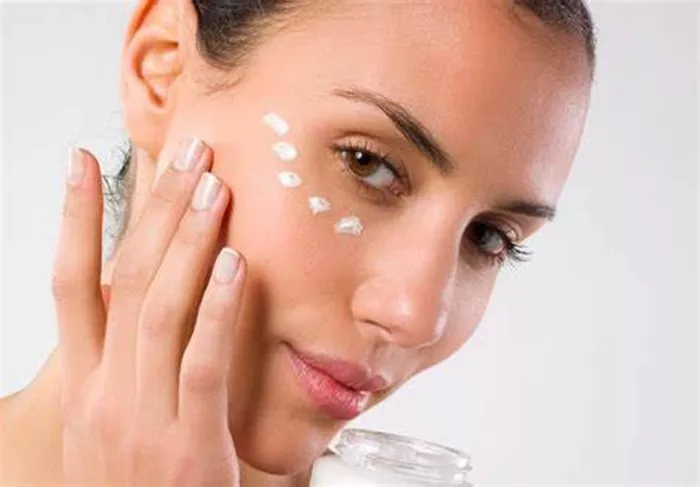Swimming is a refreshing and enjoyable activity that provides a great workout and helps relax the mind. However, exposure to chlorine, saltwater, and sun can take a toll on both hair and skin. Proper post-swimming care is essential to maintain healthy hair and skin. This article explores effective strategies to rejuvenate your hair and skin after swimming, ensuring you emerge from the water looking and feeling your best.
The Effects of Swimming on Hair and Skin
Swimming can be invigorating, but it also exposes your hair and skin to various elements that can lead to dryness, damage, and irritation.
Chlorine and Its Impact
Chlorine is commonly used in pools to kill bacteria and maintain water cleanliness. While it serves a crucial purpose, chlorine can strip the natural oils from your hair and skin, leading to dryness and brittleness.
1. For Hair:
- Chlorine can lead to color fading, especially in dyed hair.
- It can cause hair cuticles to lift, resulting in frizz and tangles.
- In severe cases, excessive chlorine exposure can lead to hair breakage.
2. For Skin:
- Chlorine can cause skin irritation and exacerbate conditions like eczema.
- It can lead to dryness and flakiness, particularly in sensitive areas like the face and scalp.
- Prolonged exposure can disrupt the skin’s natural barrier, making it more vulnerable to irritants and pathogens.
Saltwater and Its Effects
Saltwater, found in oceans and some pools, has its unique challenges.
1. For Hair:
- Salt can draw moisture out of the hair, leading to dryness and dullness.
- It can create a gritty texture that makes hair feel rough and tangled.
- Sun exposure combined with salt can cause additional damage, particularly to color-treated hair.
2. For Skin:
- Saltwater can be dehydrating, leading to a tight feeling after swimming.
- It can also lead to irritation, especially for those with sensitive skin.
- Like chlorine, salt can disrupt the skin’s natural oils, leading to dryness and irritation.
Immediate Care After Swimming
After your swimming session, immediate care is crucial for mitigating damage. Here’s how to address the effects of chlorine and saltwater on your hair and skin effectively.
For Your Hair
1. Rinse Immediately:
As soon as you exit the pool or ocean, rinse your hair thoroughly with fresh water. This helps remove chlorine or salt before they have a chance to cause damage.
2. Use a Clarifying Shampoo:
Consider using a clarifying shampoo specifically designed to remove chlorine and salt. Look for products that contain chelating agents, which bind to chlorine and facilitate its removal from your hair.
Use clarifying shampoo sparingly (once a week) to avoid over-drying your hair.
3. Condition Deeply:
Apply a deep conditioner or a hydrating hair mask after rinsing. Focus on the ends of your hair, as they are often the most damaged.
Leave the conditioner in for at least 10-15 minutes for maximum hydration.
4. Avoid Heat Styling:
After swimming, let your hair air-dry instead of using heat styling tools. Heat can exacerbate dryness and damage already caused by chlorine and salt.
5. Detangle Gently:
Use a wide-tooth comb to detangle your hair while it’s still wet. Start from the ends and work your way up to avoid breakage.
For Your Skin
1. Shower Immediately:
Take a cool or lukewarm shower right after swimming to wash away chlorine or salt. Avoid hot showers, as they can further dry out your skin.
2. Use a Gentle Cleanser:
Opt for a gentle, hydrating body wash or soap to cleanse your skin. Avoid harsh soaps that can strip away natural oils.
3. Moisturize Immediately:
After cleansing, apply a rich moisturizer to your skin while it’s still damp. This helps lock in moisture and prevent dryness.
Look for ingredients like hyaluronic acid, glycerin, or natural oils (like coconut or jojoba oil) for effective hydration.
4. Focus on Sensitive Areas:
Pay special attention to areas prone to dryness, such as elbows, knees, and feet. Apply extra moisturizer to these areas.
5. Soothe Irritated Skin:
If your skin feels irritated or itchy after swimming, consider using a soothing lotion or cream with ingredients like aloe vera, chamomile, or colloidal oatmeal.
Weekly Care Routine
In addition to immediate care, establishing a weekly routine can help maintain the health of your hair and skin.
For Your Hair
1. Hydrating Masks:
Incorporate a hydrating hair mask into your weekly routine. Choose masks with nourishing ingredients like avocado, honey, or argan oil.
2. Protective Hairstyles:
When swimming, consider protective hairstyles like braids or buns to minimize damage. These styles can help reduce tangling and exposure to chlorine or saltwater.
3. Regular Trims:
Schedule regular trims every 6-8 weeks to remove split ends and maintain healthy hair.
4. Use Leave-in Conditioner:
Apply a leave-in conditioner or hair serum after washing your hair to provide ongoing hydration and protection.
For Your Skin
1. Exfoliation:
Exfoliate your skin weekly to remove dead skin cells and promote cell turnover. Use a gentle scrub or a chemical exfoliant (like AHAs or BHAs).
2. Sunscreen Application:
If swimming outdoors, always apply a water-resistant sunscreen with at least SPF 30 before your swim. Reapply every two hours, especially after swimming.
3. Hydrating Bath:
Consider taking a hydrating bath with ingredients like oatmeal or Epsom salts after swimming. This can soothe your skin and help retain moisture.
4. Body Oil:
After moisturizing, apply a body oil to lock in hydration. This step adds an extra layer of protection against dryness.
Long-Term Care for Hair and Skin
To maintain the health of your hair and skin over the long term, consider the following practices:
For Your Hair
1. Nutrition:
A balanced diet rich in vitamins and minerals (like biotin, omega-3 fatty acids, and vitamins A, C, and E) supports hair health. Foods like fish, nuts, seeds, fruits, and vegetables can contribute to stronger hair.
2. Hydration:
Drink plenty of water to keep your body and hair hydrated. Dehydration can lead to dry, brittle hair.
3. Limit Chemical Treatments:
Minimize the use of chemical treatments (like bleaching or perming) that can weaken your hair. If you do color your hair, choose ammonia-free formulas and always follow up with deep conditioning.
4. Hair Products:
Choose sulfate-free shampoos and conditioners that are gentle and hydrating. Avoid products with harsh chemicals that can strip natural oils.
For Your Skin
1. Regular Dermatologist Visits:
Schedule regular check-ups with a dermatologist, especially if you swim frequently or have sensitive skin. Professional advice can help you choose the best skincare products and treatments.
2. Stay Hydrated:
Drink sufficient water daily to maintain skin hydration. Consider adding electrolytes if you’re swimming in saltwater frequently.
3. Balanced Diet:
Consume a diet rich in antioxidants, vitamins, and healthy fats. Foods like berries, nuts, fish, and green leafy vegetables contribute to glowing skin.
4. Gentle Products:
Use gentle, fragrance-free skincare products, especially for sensitive skin. Avoid products with alcohol or strong fragrances that can irritate.
Additional Tips for Post-Swimming Care
Consider Swim Caps
Using a swim cap can help minimize hair exposure to chlorine or saltwater. While it won’t keep your hair completely dry, it can reduce the amount of water absorbed, leading to less damage.
Pre-Swim Treatments
Before swimming, apply a protective leave-in conditioner or oil to your hair. This creates a barrier against chlorine or saltwater, helping to preserve moisture.
Stay Informed About Pool Water Quality
If you swim in public pools, stay informed about water quality and sanitation practices. Well-maintained pools with proper chlorine levels can be less damaging to hair and skin.
Know Your Skin Type
Understanding your skin type can help you choose the right products and routines. If you have sensitive or dry skin, select products specifically formulated to cater to your needs.
Seek Professional Help for Persistent Issues
If you experience persistent dryness, irritation, or other skin issues despite proper care, consult a healthcare professional or dermatologist for personalized advice.
Conclusion
Taking care of your hair and skin after swimming is essential for maintaining their health and vitality. By implementing immediate care strategies, establishing a regular maintenance routine, and understanding the long-term effects of swimming on your body, you can protect your hair and skin from damage. With the right practices, you can continue to enjoy the benefits of swimming while ensuring your hair and skin remain healthy and beautiful. Embrace these tips, and you’ll emerge from every swim feeling refreshed and rejuvenated!
Related Topics
What Do Zinc Vitamins Do For You?


































